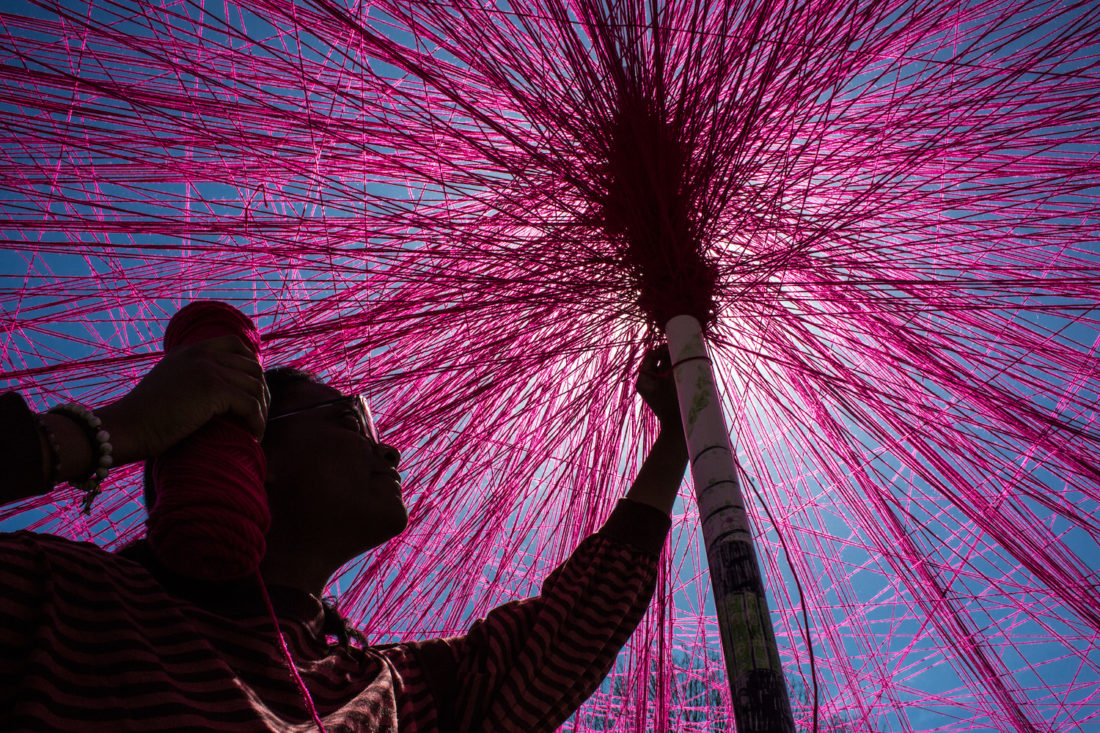The Center for Craft’s Crafting Resilience series walks a fascinating line between contemporary issues and centuries-old artistic practices.
The three free webinars are coordinated by Juliana Barton, an American Council of Learned Societies Leading Edge fellow tapped to develop programming with UNC Asheville on the intersections of craft with social justice, the COVID-19 pandemic and the 2020 presidential election.
Barton says that in speaking with faculty, local artists and community members about how to address those topics, the theme of resilience kept coming up. Another through line was discovering what people need to hear at a time when public health and social issues intersect in complex ways.
The series began March 11 with “Public Health and Collective Memory.” That discussion featured local artist DeWayne Barton speaking about his recent work and Patricia Eunji Kim of Philadelphia-based public art and history studio Monument Lab on her group’s nationwide audit of monuments.
The second installment, “Education and Community Engagement,” takes place Thursday, April 8, at 5 p.m., during which artists Tanya Aguiñiga, Celia Lesh and Cristina Tufiño will talk about their craft-based education projects that serve communities impacted by COVID-19. Their efforts were made possible by the Craft Futures Fund, which Juliana Barton says seeks to build resilience for craft and explore how craft practices relate to community engagement.
Closing out the series on Tuesday, April 20, at 6 p.m. is “Activism and Overcoming Obstacles.” In this session, ceramic artist Roberto Lugo and curator Michelle Millar Fisher will speak to using creative platforms to expose and address social inequities.
Though Juliana Barton is coordinating Crafting Resilience remotely from Massachusetts, she says the series has provided “a wonderful way for [her] to learn about the community from afar.” Her goal for the series is that viewing “vital topics” through the lens of craft will help amplify the importance of these art forms, as well as forge bonds so that resulting action can be sustained.
“I hope that it will build bridges between the local community and the university community,” Barton says. “And that partnerships and collaboration like the one that created this program can move on and help support the work that comes up.”
Stephanie Moore, the Center for Craft’s executive director, says such efforts are critical as neighbors “rebuild from the devastating impacts of COVID-19 on our community as a whole.”
“Craft is a vital tool for encouraging collaboration,” Moore says. “And Crafting Resilience is the perfect example of how these collaborations result in solutions that we can apply on a local and national level.”
To learn more and register for the two remaining programs, visit avl.mx/97s.




Before you comment
The comments section is here to provide a platform for civil dialogue on the issues we face together as a local community. Xpress is committed to offering this platform for all voices, but when the tone of the discussion gets nasty or strays off topic, we believe many people choose not to participate. Xpress editors are determined to moderate comments to ensure a constructive interchange is maintained. All comments judged not to be in keeping with the spirit of civil discourse will be removed and repeat violators will be banned. See here for our terms of service. Thank you for being part of this effort to promote respectful discussion.